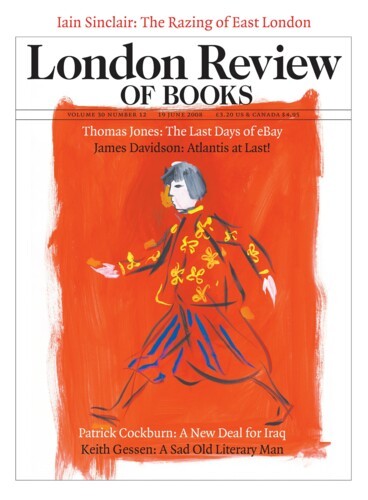The Victims of Lightning
A good poet is someone who manages, in a lifetime of standing out in thunderstorms, to be struck by lightning five or six times; a dozen or two dozen times and he is great.
Randall Jarrell
Often they are naked; clothing is scattered
across a field; or trousers and shirt
appear in some nearby village –
a little tattered, waiting to be folded.
Sometimes with women the chemise is scorched,
yet – strange – the dress and petticoats are spared.
As in war, men are in extremest danger.
‘His shoes remain on his feet!’ cries the wife,
who then begins to weep; and yes, there are boots
at the end of the man’s pale body. Height
is always there at the heart of peril:
a shepherd with staff moving among his sheep,
the tall fisherman lifting his rod, those boys
who huddle beneath a tree . . .
all in their way supply attraction. Even a raised umbrella,
black in the sky, means danger.
And lightning will boast about its work.
It likes to leave an illustration.
On one man’s trunk, a grove of pines.
On another a flower, or spider’s web.
An ancient pear tree is destroyed
yet shows the branches of itself
on the waggoner’s wide chest.
And sometimes it leaves us nothing:
it digs a trench and perforates the bones.
Over there, the farmer stands erect
as if he is posing with his cattle . . .
yet, tiptoe across the field, and touch . . .
well, every creature crumbles!
Some who survive wish to be studied.
I show them to my special room,
ask for a poem, or request a song.
They complain of melancholy and despair,
of ringing in their ears, of cramps. No one
retains the charge, though some believe they do.
Some walk with difficulty, others feel it in the brain.
The blind man regains his vision, yet now is deaf.
An imbecile is rendered sane.
A friend reports how lightning struck a church
and only the minister was spared.
The arrow of the belfry flew across the fields.
Nature is full of mystery: ephemeral realm
with permanent effects. And always accumulation
reminds us what is next: thunder in distance, choc de retour.
And silence in schoolroom and cathedral . . .
and body like paste, tongue torn from its roots . . .
so that we move to close the open door.
Outside, the poet lifts his pen, and waits.
The widow raises her umbrella.
The Sick Son
Because a tree was touching a cloud
I hid under my bed. My brother hid under the covers.
Then my mother came in. She hid inside her head.
My father was out in the great world with his axe.
Would he attack the house this time, or just the tree?
‘Come out at once,’ he called, ‘and come out singly.’
When I was little, he sat me on his knee.
He read to me. He read to me.
Captain Scott
We brought his body ashore in Oamaru.
I was on one oar, Cherry the other.
The ship stood off.
A telegram was sent, and now we all felt left behind.
I was made to sit beside him while he melted.
Send Letters To:
The Editor
London Review of Books,
28 Little Russell Street
London, WC1A 2HN
letters@lrb.co.uk
Please include name, address, and a telephone number.

